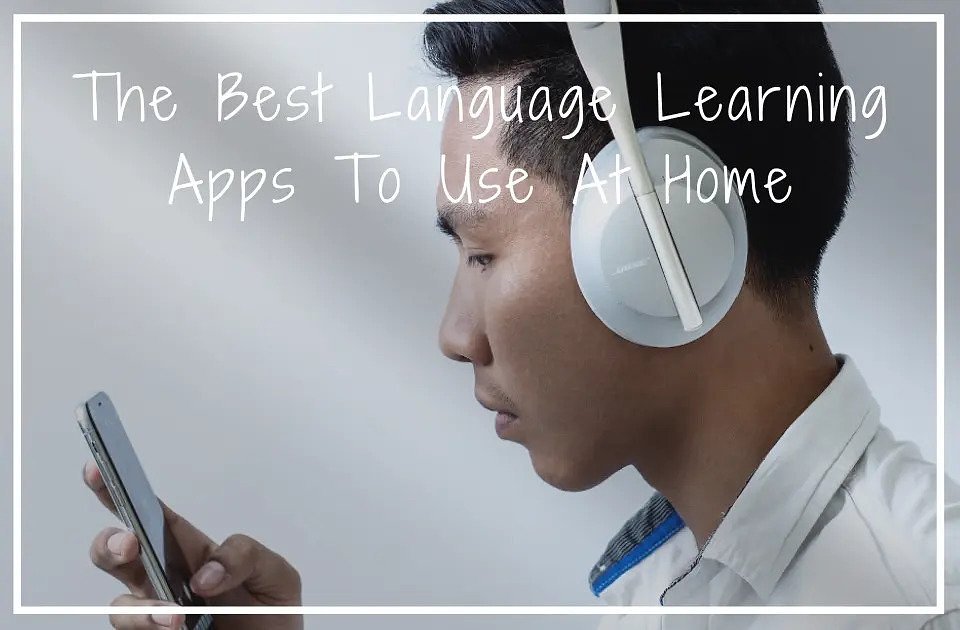The Best Language Learning Apps For Home

Posted on Wed 14 Jul 2021
As travellers from the UK, we are often seen in the same way as those that fit the typical ‘Brits abroad’ category. Although our style of travel is far from the socks and sandal-wearing Benidorm beach-goer, it can be hard to shake the stigma.
Part of this is a general lack of effort when it comes to language, such as not trying to learn any of the native tongue when we travel, or futile attempts to shout and point in the hope of this somehow working as a translation technique. Additionally, with many foreign countries now providing English translations on signs, restaurant menus and in shops, the incentive to learn a new language has all but been removed.
However, with very nearly all travel suspended at the time of writing, and people spending more time at home than normal, learning a language could be a fantastic and rewarding way to pass the time.
Therefore, we have rounded up some of our favourite apps that make language learning a doddle and will equip you with the verbal tools for your next travel adventure, whenever that may be.
Duolingo

Perhaps the best-known and most celebrated language learning app of all time, Duolingo has revolutionised the way people learn languages. Its interface is friendly and approachable, meaning that regardless of age, ability or previous experience with language, you’ll feel at ease right away.
For those that are new to the language they are learning, you’ll start slow by learning through a range of reading, spelling and pronunciation. Using your device’s microphone, you’ll even get to practise speaking in sentences!
With 31 courses available at the time of writing, and more constantly being developed by the team, you can dip in and out of different languages with ease. Overall, the app is a great way to get you started and to plant the initial seed, something we’d definitely recommend for all travellers.
Rosetta Stone

Rosetta Stone is, in many ways, the godfather of language learning. Having been established in 1992, and since producing a range of language learning products, they have now brought their service to mobile devices.
The app’s layout is a little bit more ‘serious’ than Duolingo, with more neutral colours and less animation, which speaks to the target audience that it looks to engage. For those that are serious about learning a language and want to progress from key phrases to full conversational ability, Rosetta Stone is the perfect software to do so.
Rosetta Stone is a subscription-based service which can be paid for monthly, yearly, or a one-off payment for access to their entire catalogue of courses forever. If you’re planning on learning more than one language, this is the best way to go!
Babbel
Babbel is a service which launched in 2007 with the hope of muscling in on some of the subscription-based service market share that had been mostly Rosetta Stone’s until that point.
Babbel, both in style and pricing, sits neatly between the two services already mentioned. Their courses are a manageable length, with most taking roughly 15 minutes to complete, and are a mixture of spelling, picture matching and pronunciation.
It’s worth noting that the monthly and annual fees are for just one language, so once you’ve chosen, you’re kind of locked into learning just that one.
Naturally, for most this wouldn’t be an issue, but for someone looking to brush up on basic Spanish and German from their school days, you may find this restriction a deal-breaker. However, for those looking to practise one language and improve their skills quickly, this is perfect!
Italki

Something a little different here, Italki is unlike the others mentioned above as it works by connecting users to professional teachers allowing them to learn using one-to-one video chats. These lessons are pay as you go, meaning you’ll only pay as long as you use the platform.
As you’ll be paying someone from another country to teach you their language, you’ll likely want to have basic conversational ability already under your belt, likely using one of the aforementioned services. If you’re brand new to a language, this service almost definitely isn’t for you as there is some confidence required when taking lessons.
The service is a great way to continue your progression and allow you to converse with a truly native speaker, rather than speaking into your phone or tablet.
Prices really vary with the service, typically depending on the style of the tutor. There are community tutors and professional ones, with the latter generally costing more to book. Community tutors can really be anyone that is a native speaker of the language that has a passion for teaching, whereas professional tutors are just that, professionals.
What Are You Looking For?
As these services all offer something a little bit different, occupying different segments of the market, really it’s up to you to decide which one suits your needs best. For beginners, we’d definitely recommend Duolingo as it is a free service, which can also be combined with their Tinycards app. For more experienced speakers, Italki or Rosetta Stone would definitely be the way to go.
Make sure to check out our blog for more information on travel apps, travel books and even recipes! You can also find a plethora of information on the countries we visit, such as our desert experience in Morocco or exploring Transylvania in Romania.
Read more from our blog here


